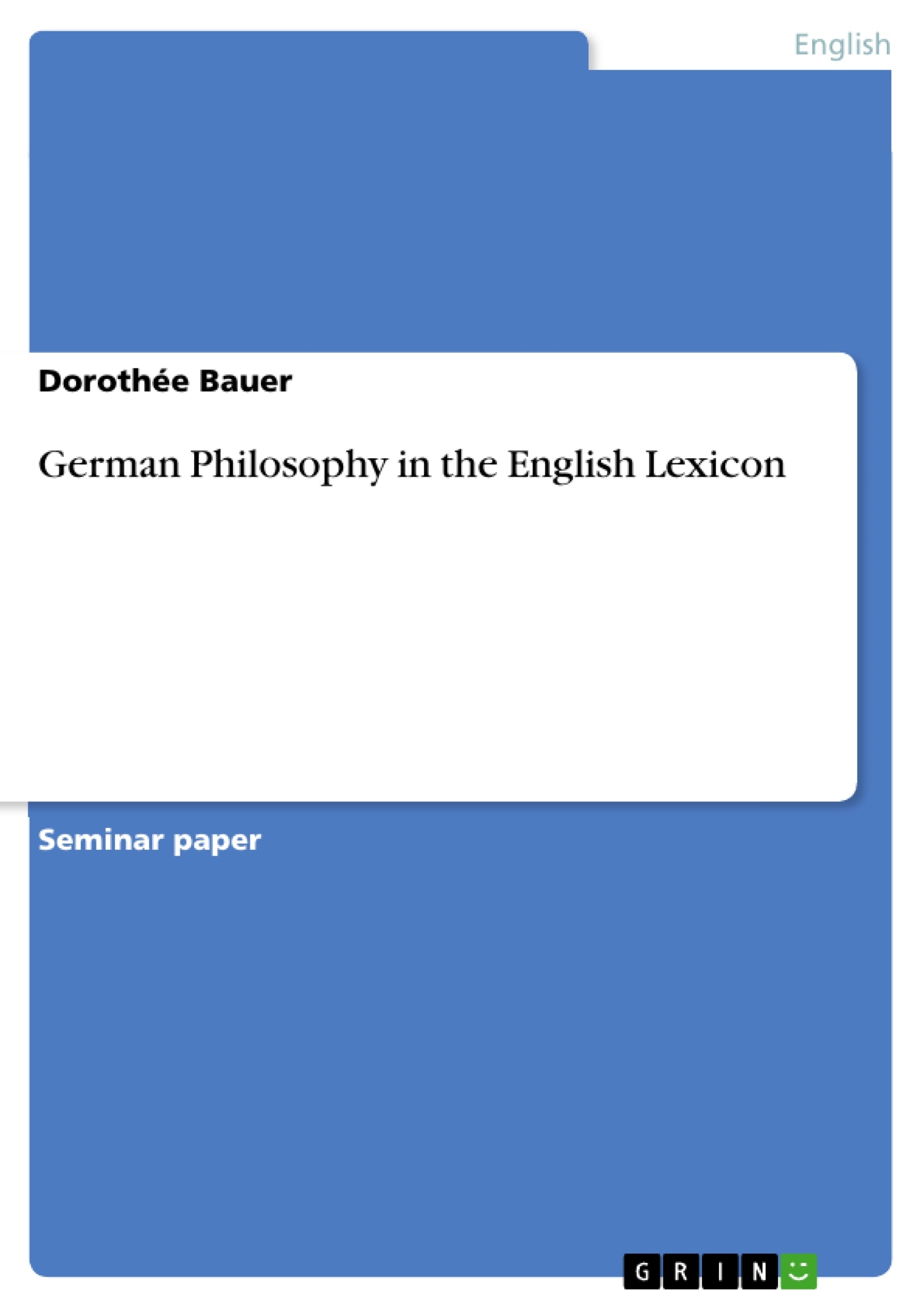For centuries, language has been shaped by circumstances not only of great importance but also in accordance with the strength of resonance it has had with men. They encompass social and historical events as well as innovations of thinking, which can be understood as a product of persistence and the will to evolve as intelligent beings. Thereby, it has generated the coinage of lexical items in particular areas of a language and, furthermore, leading to influencing foreign languages through language contact.
English as the world’s most widely spoken language is a thesaurus of a range of philosophical German etymons as well as borrowings that have made their way into the English lexicon. The Age of Enlightenment as the turning point of the independent use of reason introduced a scientific revolution in Europe, which was to explain the natural world by promoting philosophy. The remarkable influence of philosopher Immanuel Kant (1724–1804) within Idealism in the eighteenth century is noticeable within the set of new meanings to already existing vocabulary, and also sets the terms for much of the nineteenth and twentieth century.
Others include Edmund Husserl (1859-1938), the founder of phenomenology, and Martin Heidegger (1889–1976), two important German philosophers of the twentieth century, which had a major impact on new lexical items. In addition, Heidegger, as the chief leader of new compounds, introduced a special vocabulary of his own. This study examines the German philosophy and its impact on the English language over the centuries. There will be some lexical items which are rather frequently used in an everyday life context, and others which up to this time may appear rather unknown to the English speaker. In some cases there will be a more detailed analysis of the given lexical item owing to the specific usages and, also subsequently, to their varying meaning.
Inhaltsverzeichnis (Table of Contents)
- Introduction
- Lexical items
- Analysis
- Current usage
- Conclusion
Zielsetzung und Themenschwerpunkte (Objectives and Key Themes)
This paper examines the influence of German philosophy on the English language throughout history, focusing on the development of new lexical items. It explores how philosophical concepts and thinkers have contributed to the richness and diversity of the English lexicon.
- The impact of German philosophy on the English language.
- The evolution of lexical items derived from German philosophical terms.
- The role of key figures in German philosophy in shaping the English lexicon.
- The significance of German philosophy in understanding the development of the English language.
- The influence of German philosophical ideas on contemporary English usage.
Zusammenfassung der Kapitel (Chapter Summaries)
The introduction provides a historical context for the study, highlighting the significance of German philosophy in shaping the English language. It also introduces the methodology and data sources used in the research, focusing on the online Oxford English Dictionary.
The second chapter delves into the analysis of lexical items derived from German philosophy. It explores the various categories of these items, including loan renditions, direct loans, and loan translations, and provides examples of their usage in English.
Schlüsselwörter (Keywords)
German philosophy, English lexicology, lexical items, etymology, loanwords, loan translations, philosophical concepts, key figures, historical influence, contemporary usage, Oxford English Dictionary.
- Quote paper
- Dorothée Bauer (Author), 2015, German Philosophy in the English Lexicon, Munich, GRIN Verlag, https://www.grin.com/document/1381838




